- Home
- W. Somerset Maugham
Ah King (Works of W. Somerset Maugham) Page 2
Ah King (Works of W. Somerset Maugham) Read online
Page 2
“I’ve known Mrs Cartwright for over twenty years,” he said slowly. “She wasn’t a bad-looking woman in those days. Always untidy, but when she was young it didn’t seem to matter so much. It was rather attractive. She was married to a man called Bronson. Reggie Bronson. He was a planter. He was manager of an estate up in Selantan and I was stationed at Alor Lipis. It was a much smaller place than it is now; I don’t suppose there were more than twenty people in the whole community, but they had a jolly little club, and we used to have a very good time. I remember the first time I met Mrs Bronson as though it was yesterday. There were no cars in those days and she and Bronson had ridden in on their bicycles. Of course then she didn’t look so determined as she looks now. She was much thinner, she had a nice colour, and her eyes were very pretty-blue, you know-and she had a lot of dark hair. If she’d only taken more trouble with herself she’d have been rather stunning. As it was she was the best-looking woman there.”
I tried to construct in my mind a picture of what Mrs Cartwright-Mrs Bronson as she was then-looked like from what she was now and from Gaze’s not very graphic description. In the solid woman, with her well-covered bones, who sat rather heavily at the bridge-table, I tried to see a slight young thing with buoyant movements and graceful, easy gestures. Her chin now was square and her nose decided, but the roundness of youth must have masked this: she must have been charming with a pink-and-white skin and her hair, carelessly dressed, brown and abundant. At that period she wore a long skirt, a tight waist, and a picture hat. Or did women in Malaya still wear the topees that you see in old numbers of the illustrated papers?
“I hadn’t seen her for-oh, nearly twenty years,” Gaze went on. “I knew she was living somewhere in the F.M.S., but it was a surprise when I took this job and came here to run across her in the club just as I had up in Selantan so many years before. Of course she’s an elderly woman now and she’s changed out of all recognition. It was rather a shock to see her with a grown-up daughter, it made me realize how the time had passed; I was a young fellow when I met her last and now, by Jingo, I’m due to retire on the age limit in two or three years. Bit thick, isn’t it?”
Gaze, a rueful grin on his ugly face, looked at me with faint indignation, as though I could help the hurrying march of the years as they trod upon one another’s heels.
“I’m no chicken myself,” I replied.
“You haven’t lived out East all your life. It ages one before one’s time. One’s an elderly man at fifty and at fifty-five one’s good for nothing but the scrap-heap.”
But I did not want Gaze to wander off into a disquisition on old age.
“Did you recognize Mrs Cartwright when you saw her again?” I asked.
“Well, I did and I didn’t. At the first glance I thought I knew her, but couldn’t quite place her. I thought perhaps she was someone I’d met on board ship when I was going on leave and had known only by sight. But the moment she spoke I remembered at once. I remembered the dry twinkle in her eyes and the crisp sound of her voice. There was something in her voice that seemed to mean: You’re a bit of a damned fool, my lad, but you’re not a bad sort and upon my soul I rather like you.”
“That’s a good deal to read into the sound of a voice,” I smiled.
“She came up to me in the club and shook hands with me. ‘How do you do, Major Gaze? Do you remember me?’ she said.
“‘Of course I do.’
“‘A lot of water has passed under the bridge since we met last. We’re none of us as young as we were. Have you seen Theo?’
“For a moment I couldn’t think whom she meant. I suppose I looked rather stupid, because she gave a little smile, that chaffing smile that I knew so well, and explained.
“‘I married Theo, you know. It seemed the best thing to do. I was lonely and he wanted it.’
“‘I heard you married him,’ I said. ‘I hope you’ve been very happy.’
“‘Oh, very. Theo’s a perfect duck. He’ll be here in a minute. He’ll be so glad to see you.’
“I wondered. I should have thought I was the last man Theo would wish to see. I shouldn’t have thought she would wish it very much either. But women are funny.”
“Why shouldn’t she wish to see you?” I asked.
“I’m coming to that later,” said Gaze. “Then Theo turned up. I don’t know why I call him Theo; I never called him anything but Cartwright, I never thought of him as anything but Cartwright. Theo was a shock. You know what he looks like now; I remembered him as a curly-headed youngster, very fresh and clean-looking. He was always neat and dapper, he had a good figure, and he held himself well, like a man who’s used to taking a lot of exercise. Now I come to think of it he wasn’t bad-looking, not in a big, massive way, but graceful, you know, and lithe. When I saw this bowed, cadaverous, bald-headed old buffer with spectacles I could hardly believe my eyes. I shouldn’t have known him from Adam. He seemed pleased to see me, at least, interested; he wasn’t effusive, but he’d always been on the quiet side and I didn’t expect him to be.
“‘Are you surprised to find us here?’ he asked me.
“‘Well, I hadn’t the faintest notion where you were.’
“‘We’ve kept track of your movements more or less. We’ve seen your name in the paper every now and then. You must come out one day and have a look at our place. We’ve been settled there a good many years, and I suppose we shall stay there till we go home for good. Have you ever been back to Alor Lipis?’
“‘No, I haven’t,’ I said.
“‘It was a nice little place. I’m told it’s grown. I’ve never been back.’
“‘It hasn’t got the pleasantest recollections for us,’ said Mrs Cartwright.
“I asked them if they’d have a drink and we called the boy. I dare say you noticed that Mrs Cartwright likes her liquor; I don’t mean that she gets tight or anything like that, but she drinks her stengah like a man. I couldn’t help looking at them with a certain amount of curiosity. They seemed perfectly happy; I gathered that they hadn’t done at all badly, and I found out later that they were quite well off. They had a very nice car, and when they went on leave they denied themselves nothing. They were on the best of terms with one another. You know how jolly it is to see two people who’ve been married a great many years obviously better pleased with their own company than anyone else’s. Their marriage had evidently been a great success. And they were both of them devoted to Olive and very proud of her. Theo especially.”
“Although she was only his step-daughter?” I said.
“Although she was only his step-daughter,” answered Gaze. “You’d think that she would have taken his name. But she hadn’t. She called him Daddy, of course, he was the only father she’d ever known, but she signed her letters, Olive Bronson.”
“What was Bronson like, by the way?”
“Bronson? He was a great big fellow, very hearty, with a loud voice and a bellowing laugh, beefy, you know, and a fine athlete. There was not very much to him, but he was as straight as a die. He had a red face and red hair. Now I come to think of it I remember that I never saw a man sweat as much as he did. Water just poured off him, and when he played tennis he always used to bring a towel on the court with him.”
“It doesn’t sound very attractive.”
“He was a handsome chap. He was always fit. He was keen on that. He hadn’t much to talk about but rubber and games, tennis, you know, and golf and shooting; and I don’t suppose he read a book from year’s end to year’s end. He was the typical public-school boy. He was about thirty-five when I first knew him, but he had the mind of a boy of eighteen. You know how many fellows when they come out East seem to stop growing.”
I did indeed. One of the most disconcerting things to the traveller is to see stout, middle-aged gentlemen, with bald heads, speaking and acting like schoolboys. You might almost think that no idea has entered their heads since they first passed through the Suez Canal. Though married and the fathers of children, a
nd perhaps in control of a large business, they continue to look upon life from the standpoint of the sixth form.
“But he was no fool,” Gaze went on. “He knew his work from A to Z. His estate was one of the best managed in the country and he knew how to handle his labour. He was a damned good sort, and if he did get on your nerves a little you couldn’t help liking him. He was generous with his money, and always ready to do anybody a good turn. That’s how Cartwright happened to turn up in the first instance.”
“Did the Bronsons get on well together?”
“Oh, yes, I think so. I’m sure they did. He was good-natured and she was very jolly and gay. She was very outspoken, you know. She can be damned amusing when she likes even now, but there’s generally a sting lurking in the joke; when she was a young woman and married to Bronson it was just pure fun. She had high spirits and liked having a good time. She never cared a hang what she said, but it went with her type, if you understand what I mean; there was something so open and frank and careless about her that you didn’t care what she said to you. They seemed very happy.
“Their estate was about five miles from Alor Lipis. They had a trap and they used to drive in most evenings about five. Of course it was a very small community and men were in the majority. There were only about six women. The Bronsons were a god-send. They bucked things up the moment they arrived. We used to have very jolly times in that little club. I’ve often thought of them since and I don’t know that on the whole I’ve ever enjoyed myself more than I did when I was stationed there. Between six and eight-thirty the club at Alor Lipis twenty years ago was about as lively a place as you could find between Aden and Yokohama.
“One day Mrs Bronson told us that they were expecting a friend to stay with them and a few days later they brought Cartwright along. It appeared that he was an old friend of Bronson’s, they’d been at school together, Marlborough, or some place like that, and they’d first come out East on the same ship. Rubber had taken a toss and a lot of fellows had lost their jobs. Cartwright was one of them. He’d been out of work for the greater part of a year and he hadn’t anything to fall back on. In those days planters were even worse paid than they are now and a man had to be very lucky to put by something for a rainy day. Cartwright had gone to Singapore. They all go there when there’s a slump, you know. It’s awful then, I’ve seen it; I’ve known of planters sleeping in the street because they hadn’t the price of a night’s lodging. I’ve known them stop strangers outside the Europe and ask for a dollar to get a meal, and I think Cartwright had had a pretty rotten time.
“At last he wrote to Bronson and asked him if he couldn’t do something for him. Bronson asked him to come and stay till things got better, at least it would be free board and lodging, and Cartwright jumped at the chance, but Bronson had to send him the money to pay his railway fare. When Cartwright arrived at Alor Lipis he hadn’t ten cents in his pocket. Bronson had a little money of his own, two or three hundred a year, I think, and though his salary had been cut, he’d kept his job, so that he was better off than most planters. When Cartwright came Mrs Bronson told him that he was to look upon the place as his home and stay as long as he liked.”
“It was very nice of her, wasn’t it?” I remarked.
“Very.”
Gaze lit himself another cheroot and filled his glass. It was very still and but for the occasional croak of the chik-chak the silence was intense. We seemed to be alone in the tropical night and heaven only knows how far from the habitations of men. Gaze did not speak for so long that at last I was forced to say something.
“What sort of a man was Cartwright at that time?” I asked. “Younger, of course, and you told me rather nice-looking; but in himself?”
“Well, to tell you the truth, I never paid much attention to him. He was pleasant and unassuming. He’s very quiet now, as I dare say you noticed; well, he wasn’t exactly lively then. But he was perfectly inoffensive. He was fond of reading and he played the piano rather nicely. You never minded having him about, he was never in the way, but you never bothered very much about him. He danced well and the women rather liked that, but he also played billiards quite decently and he wasn’t bad at tennis. He fell into our little groove very naturally. I wouldn’t say that he ever became wildly popular, but everyone liked him. Of course we were sorry for him, as one is for a man who’s down and out, but there was nothing we could do, and, well, we just accepted him and then forgot that he hadn’t always been there. He used to come in with the Bronsons every evening and pay for his drinks like everyone else, I suppose Bronson had lent him a bit of money for current expenses, and he was always very civil. I’m rather vague about him, because really he didn’t make any particular impression on me; in the East one meets such a lot of people, and he seemed very much like anybody else. He did everything he could to get something to do, but he had no luck; the fact is, there were no jobs going, and sometimes he seemed rather depressed about it. He was with the Bronsons for over a year. I remember his saying to me once:
“‘After all I can’t live with them for ever. They’ve been most awfully good to me, but there are limits.’
“‘I should think the Bronsons would be very glad to have you,’ I said. ‘It’s not particularly gay on a rubber estate, and as far as your food and drink go, it must make precious little difference if you’re there or not.’”
Gaze stopped once more and looked at me with a sort of hesitation.
“What’s the matter?” I asked.
“I’m afraid I’m telling you this story very badly,” he said. “I seem to be just rambling on. I’m not a damned novelist, I’m a policeman, and I’m just telling you the facts as I saw them at the time; and from my point of view all the circumstances are important; it’s important, I mean, to realize what sort of people they were.”
“Of course. Fire away.”
“I remember someone, a woman, I think it was, the doctor’s wife, asking Mrs Bronson if she didn’t get tired sometimes of having a stranger in the house. You know, in places like Alor Lipis there isn’t very much to talk about, and if you didn’t talk about your neighbours there’d be nothing to talk about at all.” “‘Oh, no,’ she said, ‘Theo’s no trouble.’ She turned to her husband, who was sitting there mopping his face. ‘We like having him, don’t we?’
“‘He’s all right,’ said Bronson.
“‘What does he do with himself all day long?’
“‘Oh, I don’t know,’ said Mrs Bronson. ‘He walks round the estate with Reggie sometimes, and he shoots a bit. He talks to me.’
“‘He’s always glad to make himself useful,’ said Bronson. ‘The other day when I had a go of fever, he took over my work and I just lay in bed and had a good time.’”
“Hadn’t the Bronsons any children?” I asked.
“No,” Gaze answered. “I don’t know why, they could well have afforded it.”
Gaze leant back in his chair. He took off his glasses and wiped them. They were very strong and hideously distorted his eyes. Without them he wasn’t so homely. The chik-chak on the ceiling gave its strangely human cry. It was like the cackle of an idiot child.
“Bronson was killed,” said Gaze suddenly.
“Killed?”
“Yes, murdered. I shall never forget that night. We’d been playing tennis, Mrs Bronson and the doctor’s wife, Theo Cartwright and I; and then we played bridge. Cartwright had been off his game and when we sat down at the bridge-table Mrs Bronson said to him: ‘Well, Theo, if you play bridge as rottenly as you played tennis we shall lose our shirts.’
“We’d just had a drink, but she called the boy and ordered another round.
“‘Put that down your throat,’ she said to him, ‘and don’t call without top honours and an outside trick.’
“Bronson hadn’t turned up, he’d cycled in to Kabulong to get the money to pay his coolies their wages and was to come along to the club when he got back. The Bronsons’ estate was nearer Alor Lipis than it was to Kabulon
g, but Kabulong was a more important place commercially, and Bronson banked there.
“‘Reggie can cut in when he turns up,’ said Mrs Bronson.
“‘He’s late, isn’t he?’ said the doctor’s wife.
“‘Very. He said he wouldn’t get back in time for tennis, but would be here for a rubber. I have a suspicion that he went to the club at Kabulong instead of coming straight home and is having drinks, the ruffian.’
“‘Oh, well, he can put away a good many without their having much effect on him,’ I laughed.
“‘He’s getting fat, you know. He’ll have to be careful.’
“We sat by ourselves in the card-room and we could hear the crowd in the billiard-room talking and laughing. They were all on the merry side. It was getting on to Christmas Day and we were all letting ourselves go a little. There was going to be a dance on Christmas Eve.
“I remembered afterwards that when we sat down the doctor’s wife asked Mrs Bronson if she wasn’t tired.
“‘Not a bit,’ she said. ‘Why should I be?’.
“I didn’t know why she flushed.
“‘I was afraid the tennis might have been too much for you,’ said the doctor’s wife.
“‘Oh, no,’ answered Mrs Bronson, a trifle abruptly, I thought, as though she didn’t want to discuss the matter.
“I didn’t know what they meant, and indeed it wasn’t till later that I remembered the incident.
“We played three or four rubbers and still Bronson didn’t turn up.
“‘I wonder what’s happened to him,’ said his wife. ‘I can’t think why he should be so late.’
“Cartwright was always silent, but this evening he had hardly opened his mouth. I thought he was tired and asked him what he’d been doing.
“‘Nothing very much,’ he said. ‘I went out after tiffin to shoot pigeon.’
“‘Did you have any luck?’ I asked.
“‘Oh, I got half a dozen. They were very shy.’
“But now he said: ‘If Reggie got back late, I dare say he thought it wasn’t worth while to come here. I expect he’s had a bath and when we get in we shall find him asleep in his chair.’

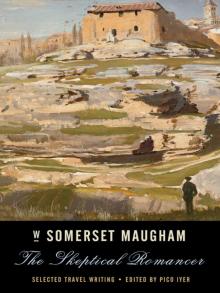 The Skeptical Romancer: Selected Travel Writing
The Skeptical Romancer: Selected Travel Writing The Summing Up
The Summing Up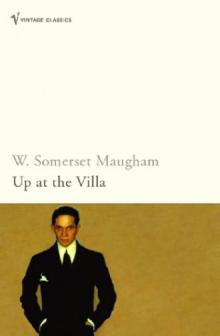 Up at the Villa
Up at the Villa The Razor's Edge
The Razor's Edge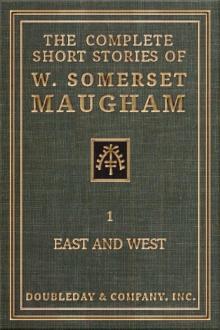 The Complete Short Stories of W. Somerset Maugham: East and West (Vol. 1 of 2))
The Complete Short Stories of W. Somerset Maugham: East and West (Vol. 1 of 2))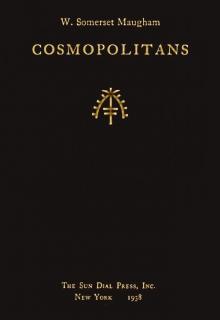 Cosmopolitans
Cosmopolitans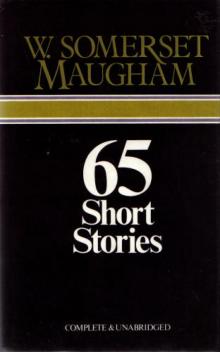 65 Short Stories
65 Short Stories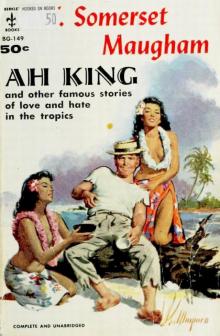 Ah King (Works of W. Somerset Maugham)
Ah King (Works of W. Somerset Maugham) Collected Short Stories: Volume 1
Collected Short Stories: Volume 1 Collected Short Stories Volume 2
Collected Short Stories Volume 2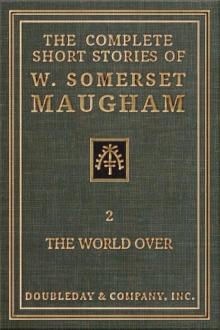 The Complete Short Stories of W. Somerset Maugham - II - The World Over
The Complete Short Stories of W. Somerset Maugham - II - The World Over Collected Short Stories Volume 4
Collected Short Stories Volume 4 Theatre
Theatre Short Stories
Short Stories Then and Now
Then and Now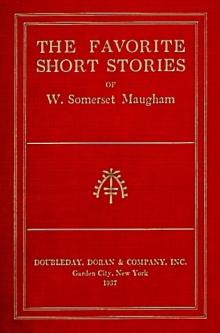 The Favorite Short Stories of W. Somerset Maugham
The Favorite Short Stories of W. Somerset Maugham Of Human Bondage
Of Human Bondage The Magician
The Magician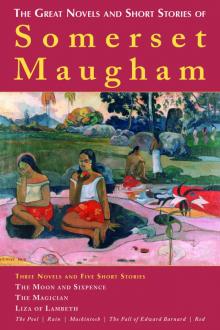 The Great Exotic Novels and Short Stories of Somerset Maugham
The Great Exotic Novels and Short Stories of Somerset Maugham A Writer's Notebook
A Writer's Notebook Christmas Holiday
Christmas Holiday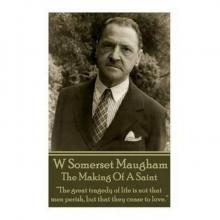 The Making of a Saint
The Making of a Saint Merry Go Round
Merry Go Round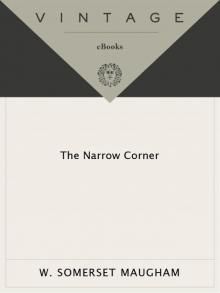 The Narrow Corner
The Narrow Corner Collected Short Stories Volume 3
Collected Short Stories Volume 3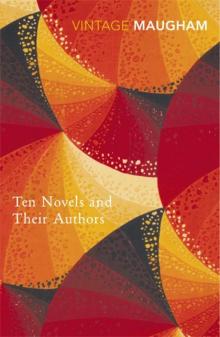 Ten Novels and Their Authors
Ten Novels and Their Authors Ashenden
Ashenden The Moon and Sixpence
The Moon and Sixpence Cakes and Ale
Cakes and Ale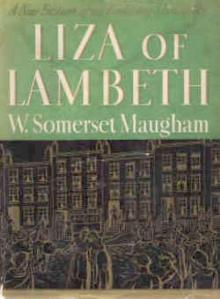 Liza of Lambeth
Liza of Lambeth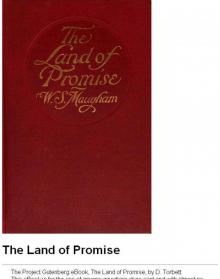 The Land of Promise: A Comedy in Four Acts (1922)
The Land of Promise: A Comedy in Four Acts (1922) A Writer's Notebook (Vintage International)
A Writer's Notebook (Vintage International)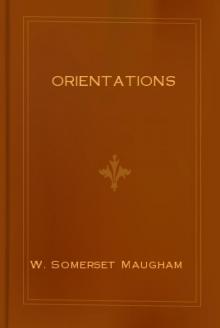 Orientations
Orientations Selected Masterpieces
Selected Masterpieces Mrs Craddock
Mrs Craddock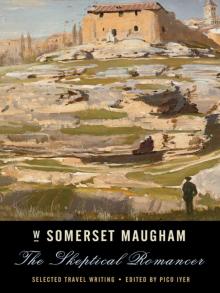 The Skeptical Romancer
The Skeptical Romancer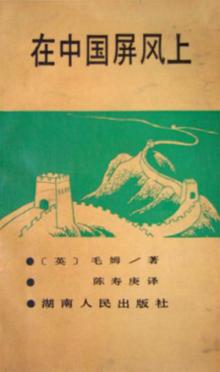 On a Chinese Screen
On a Chinese Screen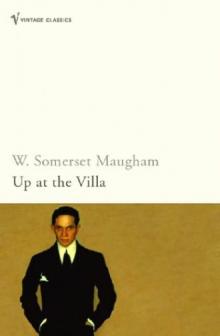 (1941) Up at the Villa
(1941) Up at the Villa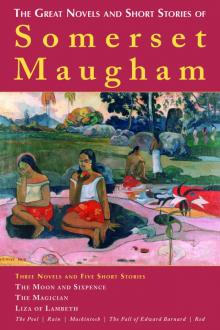 The Great Novels and Short Stories of Somerset Maugham
The Great Novels and Short Stories of Somerset Maugham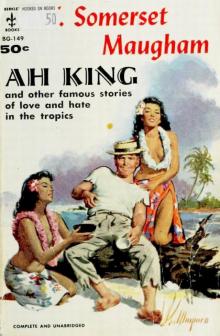 Ah King
Ah King The Explorer
The Explorer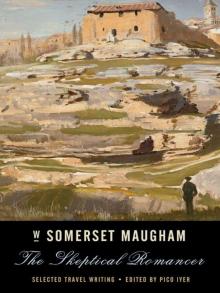 The Skeptical Romancer: Selected Travel Writing (Vintage Departures)
The Skeptical Romancer: Selected Travel Writing (Vintage Departures)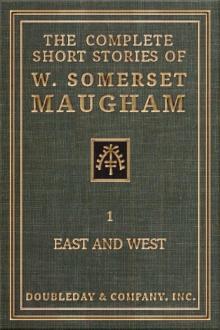 The Complete Short Stories of W. Somerset Maugham - I - East and West
The Complete Short Stories of W. Somerset Maugham - I - East and West